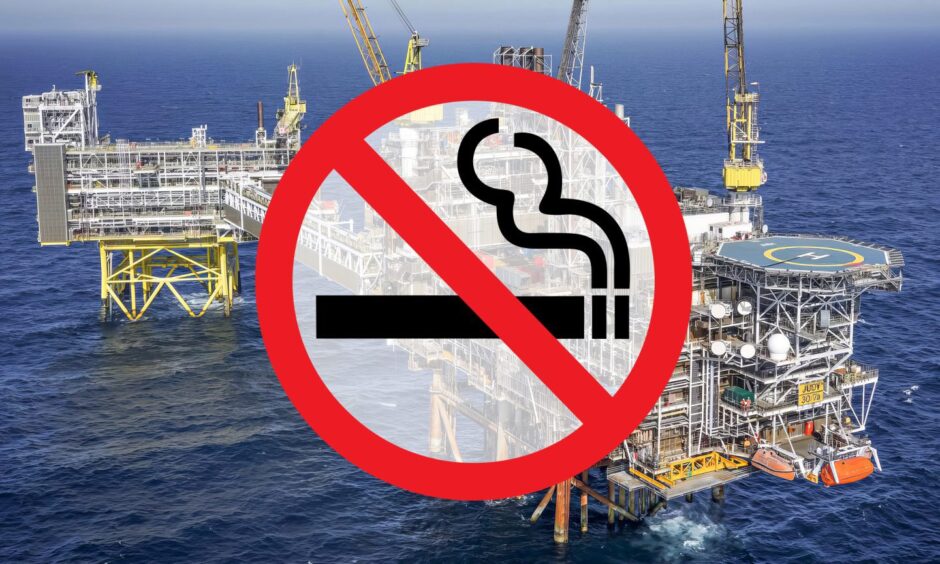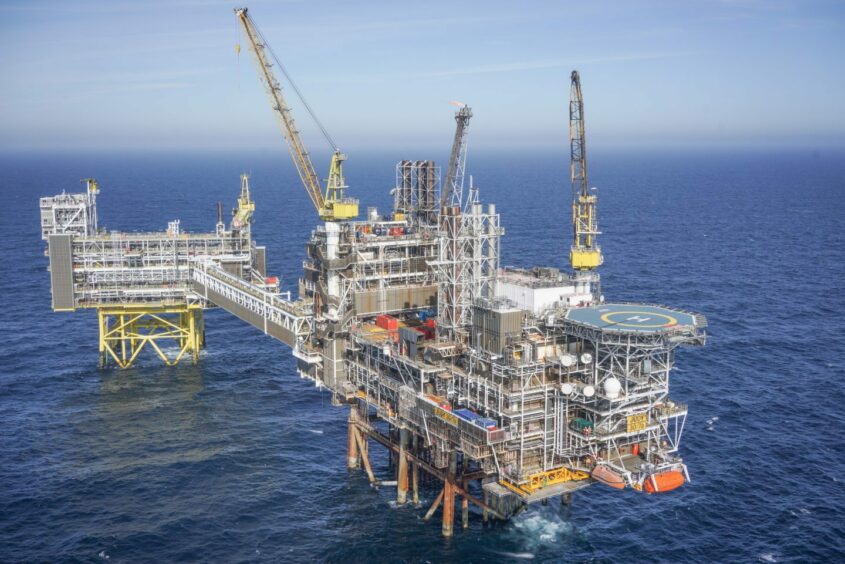
There are around 76,000 smoking-related deaths per year in the UK, with this in mind Harbour Energy’s chief medical officer hopes to see an end to smoking offshore.
Dr David Leiper said: “The government’s aim is to try and get us a smoke-free society before 2030, and I’d like to see us align absolutely with the government on that aim”
The chief medical officer shared umbrage with the fact that the bond onboard offshore installations sell cigarettes at duty free prices, something he says is “enabling smokers.”
“I think if we don’t start taking a closer view on or putting cigarettes smoking under the microscope, we might as well not bother with some of the other stuff that we’re doing,” he told Energy Voice.
“We try and get people to lose a bit of weight. We try and get them to address their blood pressure issues to get their cholesterol profile looking a bit more favourable.
“But actually, if we could stop those who smoke offshore from smoking, we’d literally cut our cardiovascular risk in half.”
The Office of National Statistics says that smokers make up around 12.9% of the UK population.
However, he cited an audit he carried out in 2018-19 that found 30% of offshore workers were smokers, at the time the national statistic stood at around 20%.
He added: “My thoughts are we’ve still got a higher percentage of smokers offshore than we do onshore and we need to do something about it.”
Phasing out cigarettes
Dr Leiper has a plan, albeit one that is still to be signed off by those higher up the chain of command, for how to support smokers as cigarettes become less available on Harbour installations.
“It needs to be a fairly long plan,” he explained. “We’ll put the prices up, then we might say we’re no longer going to sell cigarettes on our assets.”
Under the Harbour Energy (LON: HBR) chief medical officer’s initial plans for the ban on cigarette sales, offshore workers would still be able to bring tobacco with them to assets.
“That gives people the problem of, I’m only allowed so much luggage,” he said.
“Fair enough, cigarettes don’t weigh very much, but they take up a fair bit of space. So, they have to think about how they’re getting their cigarettes on the platform and how many they’re going to bring.”
Those working on Harbour Energy assets will not be left to fend for themselves when an eventual ban comes into place, the plan is to offer “nicotine replacement therapy over and above e-cigarette utilisation.”
What about e-cigarettes?
Currently, Harbour does not allow the use of e-cigarettes offshore. This is for two reasons, the first is that those who vape and those who smoke cigarettes are not allowed to use the same area by law as those with e-cigarettes will be exposed to second-hand smoke from burning tobacco.
The second reason Dr Leiper gave for his ruling against vaping is that “We still don’t know the long-term health effect of e-cigarette usage.”
He said that “There’s been less than 10 deaths in total since e-cigarettes were introduced” 10 years ago, however, his fear is that “in 20 years’ time are we to see a new type of respiratory pathology.”
However, once the jury is in on the long-term health implications of vaping and when tobacco smokers are no longer using smoking spaces on Harbour assets, Dr Leiper sees a potential for e-cigarettes to be used offshore.
He said: “I’d rather have nicotine replacement therapy than e-cigarette usage, but I am looking at e-cigarette usage.”
Dr Leiper’s days as a smoker
For those who may be faced with the prospect of giving up smoking due to this plan that is currently in the “conceptual phase,” Dr Leiper knows what that’s like.
“I’m ashamed to say that I was a smoker and I smoked for, probably, a decade between the ages of 20 and 27,” the Harbour chief medical officer shared.
However, he kicked his cigarette habit following a health scare. “I stopped because when I was 27, I unfortunately developed testicular cancer and needed chemotherapy, radiotherapy that type of thing.”
Dr Leiper is now nearly fifty-years-old now so his treatment was successful and he says he’s “fine now.”
However, that exercise made him want to make sure that he would not be putting himself at risk for developing any other types of cancer.
“I didn’t want the risk of developing a second cancer. So, was it difficult to stop? Once you set your mind to something, if you want to stop, you can stop.
“You need to want to stop, over those 10 years when I was a smoker, I tried umpteen times and failed miserably but I didn’t really want to stop at that point.”
Recommended for you

 © Supplied by Harbour Energy
© Supplied by Harbour Energy